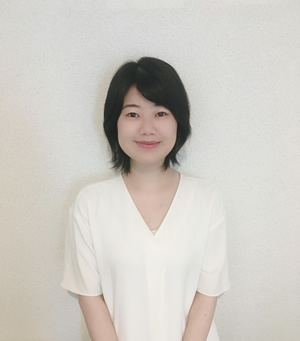 The 19th Asia Pacific Research Prize (Iue Prize) winner: Dr. Noriko Unno
The 19th Asia Pacific Research Prize (Iue Prize) winner: Dr. Noriko Unno
Title of Dissertation: “Under Crescent and Full Moons: Contradiction and Coherence of Muslims in Beijing 1906-1913”

- Dr. Noriko Unno
-
- Career -
Noriko Unno specializes in the modern history of China and Central Eurasia and Islamic studies and is currently a JSPS overseas fellow at Columbia University and a visiting research fellow at the Institute of Policy and Cultural Studies at Chuo University. She received her B.A., M.A., and Ph.D. (2017) from the University of Tokyo. She has been selected as a JSPS research fellow (DC1) and a postdoctoral fellow (PD) and has conducted research at the Harvard Yenching Institute, National Chengchi University, and the Uzbekistan Academy of Sciences.
- Summary -
The Hui people, an ethnic minority group of over 11 million people in the People’s Republic of China, home to approximately 23 million Muslims, are said to be descended from Muslims from Central Asia and West Asia who settled in China as early as the mid-seventh century. This dissertation addresses the question: How did Hui Muslims maintain their religious belief while negotiating their relationship with their non-Muslim neighbors in early twentieth-century North China, where prejudices and violence against Muslims and frictions over dietary customs were serious social problems?Some studies assert that Muslims maintained their faith by pledging allegiance to the Chinese nation and receiving support from its successive regimes, citing the slogan “Aiguo aijiao” (love country, love religion) that Muslims frequently used. By contrast, this dissertation concludes that Hui Muslims’ contradictory yet coherent practices-norms and behaviors that seemed to contradict Islamic doctrine yet were internally coherent to themselves-were one of the main factors that enabled Islam survive in the Chinese milieu. For example, the Muslim elite in Beijing issued lottery tickets to earn money for running Islamic schools and saving the poor, even though gambling is prohibited in Islam. During the Xinhai Revolution period, one Muslim scholar decided not to cut his queue, even though the queue was regarded as an un-Islamic hairstyle, to avoid criticism from elder Muslims and to save face (mianzi). Furthermore, citing groundless origin myths that their ancestors were the Arab envoys dispatched to China by the Prophet Muhammad as a “historical fact,” Muslim intellectuals claimed that Islam had a long tradition in China.
Drawing on Muslim periodicals, national and municipal archives, and records of Japanese military officers and Ottoman Muslims who tried to use Sino-Muslims for political purposes, as well as those of Christian missionaries, this dissertation argues that these acts, which some Muslims harshly criticized as contradicting Islamic doctrine, actually played an important role in stabilizing and preserving Muslim society in China. Hui Muslims’ flexible interpretations and practices of Islam that adapted to the reality of China and cannot necessarily be reduced to “Aiguo aijiao” or the dichotomy between “piety” and “impiety,” which I call “contradictory coherence,” contributed to the maintenance of their faith and relationship-building with non-Muslims.






